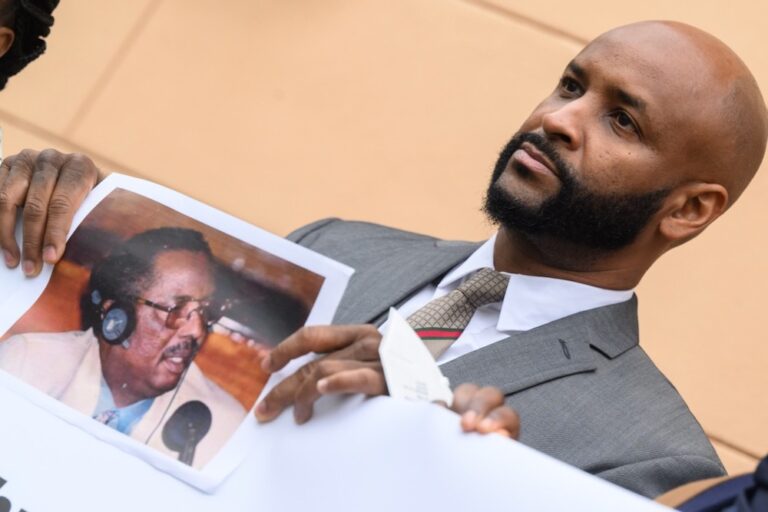President Yahya Jammeh's former press and public relations chief, Fatou Camara, has been charged with sedition for passing state secrets to a journalist. Camara previously worked as a talk show host for the state-run Gambia Radio and Television Services.
By: Timothy Spence
It is tragic but hardly surprising when journalists or news organisations in Africa face subversion charges. Tanzania’s Ministry of Information recently employed laws against sedition and publishing state secrets to temporarily halt publication of two widely-read newspapers. Several Zambian journalists were hauled into court earlier this year, initially accused of sedition. Six Ethiopian journalists are serving prison sentences, purportedly for threatening the state.
Now from Gambia comes news that President Yahya Jammeh’s former press and public relations chief has been charged with sedition for passing state secrets to a journalist. Fatou Camara, who was arrested on Oct. 10 and released after posting bail, also previously worked as a talk show host for the state-run Gambia Radio and Television Services.
Her arrest follows a whirlwind of bizarre proclamations from Banjul, the Gambian capital, including accusations that the United States and the United Kingdom were behind plots to undermine the government. Jammeh also pulled his country out of the Commonwealth, an organisation of 53 mostly current and former British colonies.
The editor of the U.S.-based Internet news site Freedom Newspaper told me that, contrary to government claims, Camara was never a source of information for his articles into alleged high-level corruption. The accusation that Camara was a mole for Freedom Newspaper is “absolutely false,” Pa Nderry M’Bai said from Raleigh, North Carolina. M’Bai’s news site is blocked in his home country.
Repression of journalism has been routine under Jammeh, who marks his 17th year of power on Oct. 18. The government’s latest legislative assault on the news media came in the form of amendments to the Information and Communication Act. It allows for a 15-year jail term and/or a fine of up to €65,000 for the offence of publishing online “false news” or derogatory comments about the government. IPI, in a statement issued after the amendments were approved on July 5, 2013 , argued that such penalties violate international standards of press freedom.
Gambian journalists are used to ham-handed treatment from their government. One of them, Pap Saine, received IPI’s World Press Freedom Hero award in 2010 for his dogged reporting in The Point newspaper. He was routinely arrested and harassed by the government.
I was unable to reach Fatou Camara by telephone. She has denied in news reports that she passed on information to the press about her former employer. But given the country’s history of bullying the news media, it is unlikely that this former spokesperson for President Jammeh will be the last victim of the government’s hostility towards freedom of the press and information.
Timothy Spence is IPI’s senior press freedom advisor for the Middle East and Africa. E-mail: tspence[at]freemedia.at



